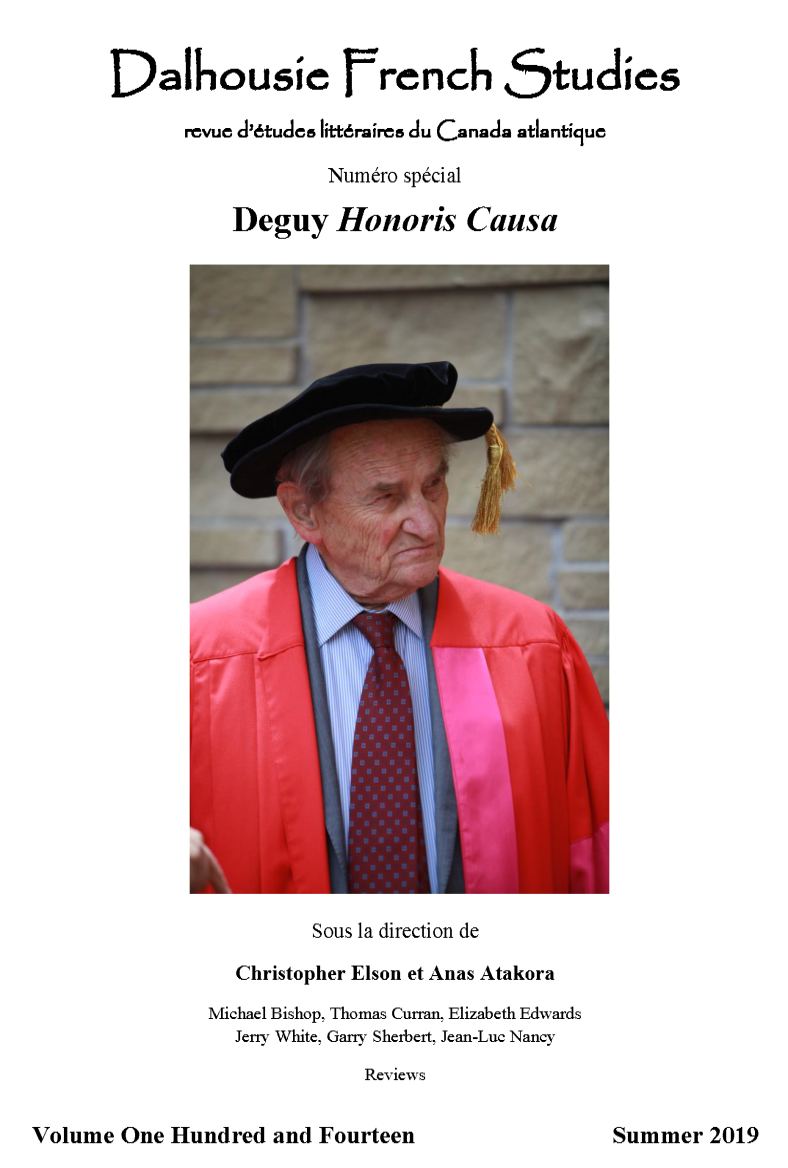“Exit without exit”: Deguy‘s Poetics of Conversion and Derridean Autoimmunity
Résumé
This essay takes as the central axiom of Michel Deguy‘s book A Man of Little Faith that art is an “exit without exit,” which is to say, an exit, or transformation of reality into a promised land that is open to what is coming, an event of messianic, albeit secularized, proportion. This “revelation out of profanation” arises from the structure of the “X without X,” a structure that empties a thing (thing of things, Deguy might say—word, concept, etc.) of itself so that we can rethink it, and calls for nothing less than a conversion experience—losing one‘s life in order to save it. Taking on the complexities and contradictions of homeopathy, negative anthropology, Jewish exemplarity, and eco-technicity, Deguy finds they all demand what Jacques Derrida calls an “autoimmune” response, whereby one protects oneself from one‘s own protection, to make an end in the world in order to reinvent it.
Cet essai tient pour fondamental l‘axiome d‘Un homme de peu de foi de Michel Deguy selon lequel l‘art serait une « issue sans issue », c‘est-à -dire une sortie, ou une transformation de la réalité en une terre promise ouverte à ce qui arrive, un événement de portée messianique, quoique laïcisé. Cette « révélation de la profanation » surgit de la structure « X sans X », une structure qui vide une chose (chose de choses, dirait Deguy— mot, concept, etc.) d‘elle-même, de sorte que nous puissions la repenser. Ce qui entraîne une expérience de conversion—perdre sa vie afin de la sauver. Tenant compte des complexités et contradictions de l‘homéopathie, de l‘anthropologie négative, de l‘exemplarité juive et de l‘éco-technicité, Deguy conclut qu‘elles exigent toutes ce que Jacques Derrida appelle une réponse « auto-immunitaire », selon laquelle l‘on se protégerait, se priverait de sa propre protection, faisant ainsi une fin dans le monde afin de le réinventer.


